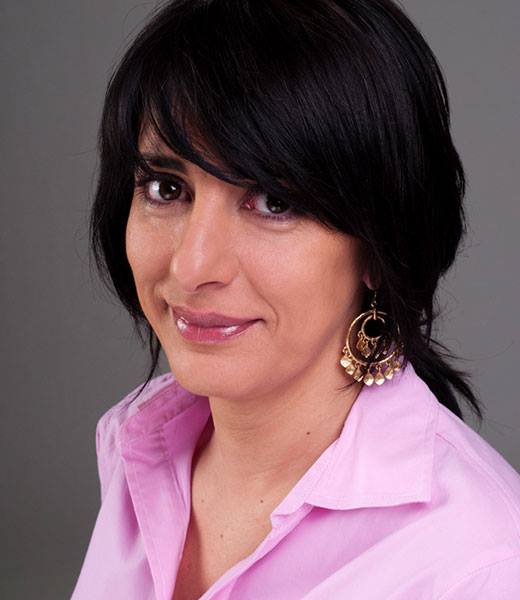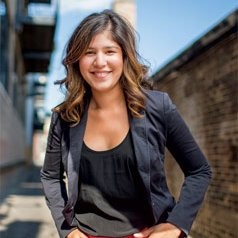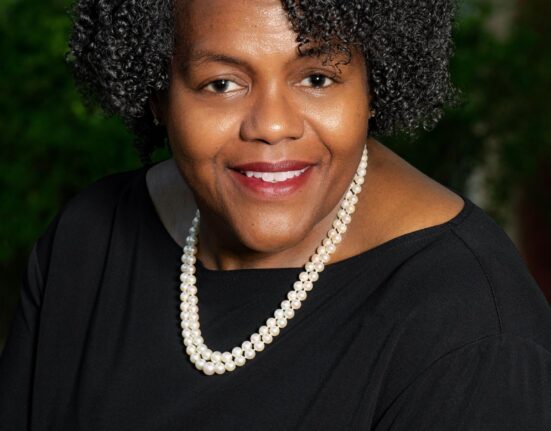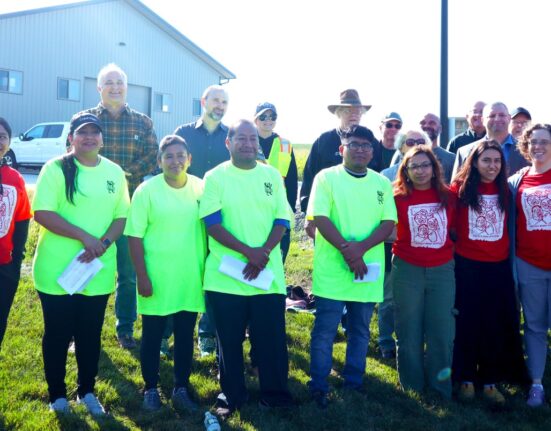
Playing the long game is one of Shiva Bidar’s many superpowers.
A stalwart among Madison’s business and political leaders for more than two decades now, Bidar’s steady influence on the public and private sector’s role in developing sustainable models of diversity, equity and inclusion (DEI) hasn’t always drawn headlines. Instead, what it’s garnered is results.
In an era when employee tenure—the median number of years a person has been with their current employer, according to the U.S. Bureau of Labor Statistics—was 4.1 years in January 2022, Bidar’s 25-year career as a DEI advocate at UW Health and since 2021 the UW School of Medicine and Public Health underscores her lifelong commitment to her work: supporting communities of color and positive outcomes for the individuals she serves. Mix in her 12 years of service on the Madison Common Council, plus dozens of boards and committees, and you begin to paint the picture of a true public servant.
Born in Iran, Bidar lived in Spain before attending graduate school in California and finding her way to Madison to become UW Health’s first Spanish interpreter in a fledgling language access program in the late 1990s. What’s changed since then? Quite a lot.
“When I first started, I would have to make the case to every single person about why they needed to use a medical interpreter,” says Bidar. “And now it’s the opposite. It’s become an expectation for both the providers and the patients—now we serve hundreds of patients a day across 23 languages in a completely integrated system.”
UW Health, she adds, is ahead of the curve.
“It’s not the case everywhere in the country, or everywhere in the state, where the provision of good language access in health care is part of the system,” she says. “In many places, people still have to struggle daily to figure out how to communicate.”
Another area where Bidar has seen the impact of her work is at the Human Resources level in an organization that boasts some 21,000 workers, seven hospitals and 80 clinic locations across Dane County. Back when she first started, people didn’t have ways to connect based on their affinity.
“If you were an African American medical assistant and you were working in “X” clinic, you probably weren’t the only one working in “X” clinic, and there was another person working in “Y” clinic. And so now we have our affinity groups, our resource groups that we created,” she says. “And it’s really allowed for such a space of safety, conversation, networking, of people feeling supported amongst each other in the work across roles, places, and spaces. Even five years ago, people were totally isolated in their own area and spaces.”
Even taking a step back to look at the larger picture of DEI at the community level, Bidar can point to real and authentic change.
“When I started, I was one of the only people talking about this issue, not just at UW Heath but in this community,” she says. “Now you can’t go anywhere without people talking about equity.”
So much so, that there have been early missteps by companies and causes in the race to adopt the DEI language, but not always the structural support that can lead to real, sustainable changes.
“For some organizations, it ends up being really tokenized, like, I to have a chief diversity officer that checks that box, and you know, we’re all good,” says Bidar. “The person that holds that job doesn’t have the ability to influence the changes that were made—the support and the staffing to do that.”
Fortunately for UW Health and Bidar, this has not been the case.
“The top leadership—our CEO Dr. [Alan] Kaplan and UW School of Medicine and Public Health Dean [Robert] Golden are fully on board and supportive, and are really understanding that it’s not a symbolic role, but it is really a role that needs to have this the capacity and support to be able to implement change. And that change oftentimes creates disruption, right? Because you can’t be doing anti-racism work without disrupting the existing system. But if you have the right kind of support, as I said, from top leadership, and you’re given resources, I think the emotionally taxing part of it is balanced by the change that you actually see happening. Sometimes there are small gains in a day, and sometimes it’s some big system change you’ve been working on for a long time.”
In addition to strong leadership and commitment to health equity, Bidar credits the UW’s mission as an academic medical center, where “The Wisconsin Idea” of intellectual advancement and social responsibility drives the work of everyone involved.
“For example, we know that representation matters to people’s health outcomes,” she says. “So we are taking very intentional steps in our workforce development programs, where we’re working in partnership with community nonprofits in creating apprenticeship programs so that people can become medical assistants and pharmacy techs. And that work really leads to economic opportunity, which then of course, also leads to better health outcomes.
“I think that it’s fair to say that we also see our role as a leader both in discovery of the cure to a disease but also in how to create health equity and DEI. So, in all of those ways, I think we’re different because of who we are. We’re also Madison-based and so we have the ability do this work within a community where there are a lot of people really pushing this work together.”
Community partnerships is an area where Bidar sees positive strides toward tackling some major health care disparities, including Black maternal child health. Together with other health care organizations in Dane County, as well as the United Way, the school district, and The Foundation for Black Women’s Wellness, UW Health is “very intentionally connecting Black women with community health workers and the resources they need.
“This collective impact model is changing the delivery of the health care system for black women in a way that, hopefully, we will see longterm impact in maternal and child health outcomes.”
Not only is Bidar a boots-on-the-ground policy and program wonk, who cites incremental changes as important as larger, systemic disruption in her work, she has always nurtured an even greater vision for the world we live in: eliminating racism.
“The vision I have for our work is to be leaders in dismantling racism in ourselves, in our system and in our communities,” she says. “That’s a lofty goal, right? But I think we have responsibility in all those three areas.”
And, once again, Bidar isn’t just talking about UW.
“I think that we have continued to struggle, just like many other cities across the state and the country, in our ability to create and maintain economic opportunities for marginalized communities. There is a huge income gap, there is a huge academic opportunity gap,” says Bidar. “Our future as a city depends on us being able to successfully do that. And if not, we won’t be able to have the kind of workforce we need to be an economic engine.
“I think that this is a really challenging but also very exciting time to be doing anti-racism and DEI work. I’ve done it for a long time. And I’m finally seeing a time in which it feels very real. It feels like people are actually listening. And that change is happening. Not as fast as I would like, but it’s happening.”
Shiva At A Glance
Languages: Fluent in French, Persian, & Spanish
Served on Madison Common Council from 2009-2021; twice as President (2013-2014; 2019-2020)
Current titles: VP and Chief Diversity Officer, UW Health; Associate Dean for Diversity & Equity Transformation
Community service: Board of Trustees, Madison College; Board President, Latino Academy for Workforce Development; Co-Chair, Latino Health Council of Dane County; Board Member, Madison Community Foundation; Co-Chair, Madison Area Diversity Roundtable






